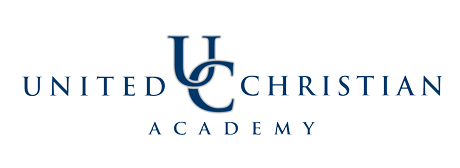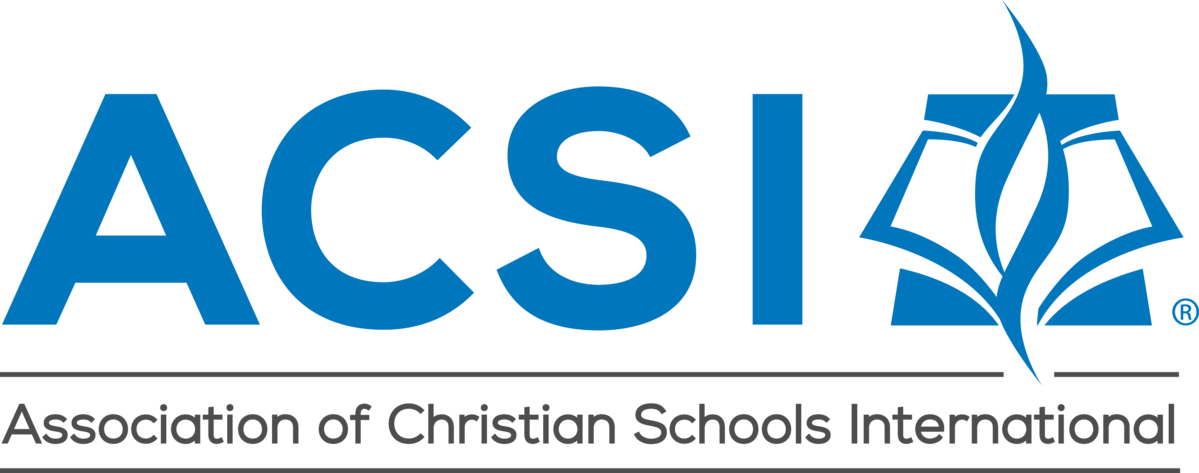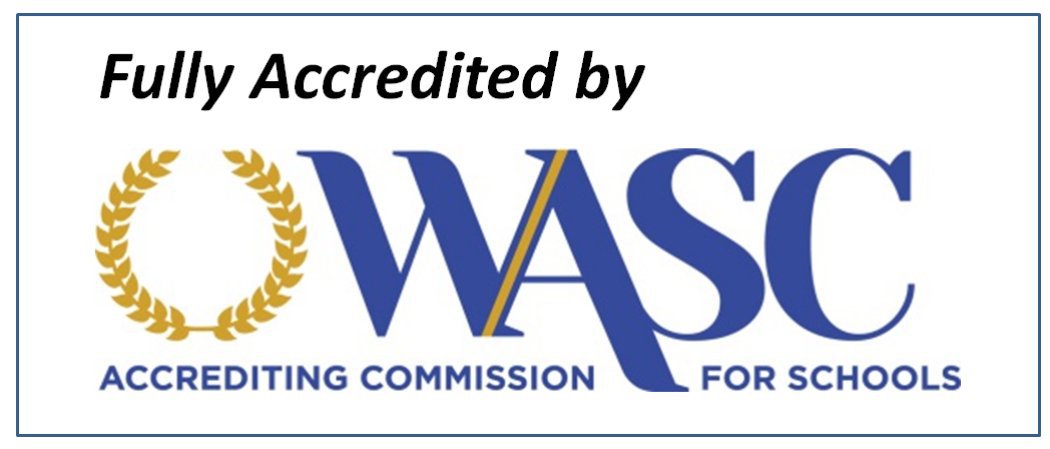Course Descriptions
English Department
Students are required to pass four consecutive years of English to graduate.
English 9
This course covers basic literary elements, a broad survey of literature from classical to contemporary, different literary genres, and composition. Students will strengthen writing skills, primarily working on autobiographical, analytical, and persuasive essays. Emphasis will be placed on writing as a process and in developing a strong voice and perspective in their writing. Students learn to outline, edit, and revise.
English 9 Honors
This course covers the same material as English 9. There will be a greater emphasis on literary skills which will incorporate the study of the short story, drama, poetry, nonfiction, and fictional reading. Students develop skills in critical thinking, analysis, and writing. The rigor of the course is such that students will be required to read and write more extensively.
English 10
This course covers basic literary elements, a broad survey of literature from classical to contemporary, different literary genres, and composition. Students will gain a more complex understanding of metaphor, allegory, symbol, irony, and allusion. There is a strong emphasis on poetry.
English 10 Honors
This course covers the same material as English 10, plus a stronger emphasis is placed upon literary analysis skills—especially in poetry. Students are expected to be able to recognize and discuss more subtle and complex meanings in the literature. They should have mastered basic writing skills. The reading requirements are more rigorous. Teacher recommendation and satisfactory completion of summer homework is required for enrollment in this class. Additional books are covered in this course.
English 11
This course is a comprehensive survey of American literature from a Christian perspective. The survey is chronological, with literature divided into four major time periods. The writing emphasis is on narrative, literary analysis, and reflective compositions. Students study the political and social influences of each time period. They employ MLA standards for documentation and presentation.
AP English Language
This junior-level course is approved for AP status by the College Board. Students in this introductory college-level course read and carefully analyze a broad and challenging range of nonfiction prose selections, deepening their awareness of rhetoric and how language works. Through close reading and frequent writing, students develop their ability to work with language and text with a greater awareness of purpose and strategy, while strengthening their own composing abilities. Course readings feature expository, analytical, personal, persuasive, and argumentative texts from a variety of authors and historical contexts. Teacher recommendation and satisfactory completion of summer homework is required for enrollment in this class. Students who pass the AP exam may earn credit for their freshman year in college.
English 12
This is a comprehensive chronological survey of British literature and a sampling of European literature. Students learn to evaluate a work’s literary artistry and consider the social and historical values it reflects and embodies. In composition, the focus is on literary analysis, reflective, and business writing. Students are required to do multimedia presentations in class.
AP English Literature and Composition
This senior-level course is approved for AP status by the College Board. First semester is a broad survey of literary genres with extensive readings in short stories, poetry, and drama. Second semester focuses on literary novels and some additional poetry analysis. Teacher recommendation and satisfactory completion of summer homework is required for enrollment in this class. Students who pass the AP exam may earn credit for their freshman year in college.
Science Department
Students are required to pass two years of a laboratory science (biology, chemistry, physics) to graduate.
Physical and Earth Science
This freshman-level course is intended to give students the mathematic and scientific foundation from which to interpret the everyday, physical world around them. First semester is primarily dedicated to physics concepts with a heavy emphasis on determining and evaluating the relationships among physical properties like mass, time, volume, etc. Students will also engage very basic chemistry ideas to help bridge concepts between both terms. The second semester focuses on concepts that expound on the physics but with an application towards the natural world around them, namely via the disciplines of geology, astronomy, and meteorology.
Biology
Biology is the study of life. This course includes the introduction of topics which include cell biology, genetics, DNA, ecology, botany, zoology, and human body systems. This course meets the California NGSS life science standards. Students will use scientific investigation and data analysis to complete the laboratory component of the course. Students will be engaged with exploring the living world around them from a Biblical worldview.
Chemistry
Algebra I is a prerequisite. This is an introductory course in chemistry. Students will participate in labs using mostly everyday chemicals to understand basic principles of how electrons govern the way matter combines and rearranges itself at the atomic scale. This course follows physical chemistry all the way through a basic primer on organic chemistry. Students must purchase the calculator designated by the teacher for this class.
AP Chemistry
This course is approved for AP status by the College Board. Algebra II and Chemistry are prerequisites. This course will enable students to take an entire year’s worth of college-level chemistry content and so is designed – both by the College Board’s AP program and United Christian Academy – as a second-year high school course. Some topics covered will be either significantly more in-depth than or foreign to a regular high school chemistry class. Students must purchase the calculator designated by the teacher for this class. Teacher recommendation and satisfactory completion of summer homework is required for enrollment in this class. Students who pass the AP exam may earn credit for their freshman year in college. “Offered every other year”
Anatomy and Physiology
This course studies the histology, anatomy, and physiology of the human organ systems within the body. This includes muscle, bone, tissue, nerves, immune system and more. Students will be able to ask questions based on scientific facts as well as use investigative strategies to answer many questions that are posed in the class. Students will engage in laboratory work throughout the course.
AP Biology
AP Biology is an introductory-level college course. Students will use inquiry-based investigation to understand biology. Topics explored in this course include cellular processes, cell communication, energy, genetics, ecology, and information transfer. A minimum of 25% of the course will be devoted to hands-on lab work and investigation. Students will be able to apply scientific practices in each lab which includes data collection, data analysis, and forming conclusions based on the data.
AP Physics
This course is approved for AP status by the College Board. Algebra II is a prerequisite. AP Physics is a college-level course in the discipline of physics. Whether 1, 2, C: mechanics or C: electricity and magnetism is taught will depend on student demand. Currently, AP Physics 1 is the most popular. Students must purchase the calculator designated by the teacher for this class. Teacher recommendation and satisfactory completion of summer homework is required for enrollment in this class. Students who pass the AP exam may earn credit for their freshman year in college.“Offered every other year”
Math Department
Students are required to pass three years of math to graduate.
Accounting
In this course, students with no prior training learn fundamental accounting skills, building an appreciation for the role of accounting in managing a profitable business. They are given an overview of financial, cost, and management accounting; learn the basic concepts, conventions and rules of the double entry system; and practice techniques to analyze ratios from the balance sheet. The concepts of ethics, integrity, and confidentiality are woven in throughout the course. Students complete this course with the skills needed for college accounting courses—essential for Business majors—office work, or managing their own small businesses.
Algebra I
This course covers the fundamentals of algebraic skills which include algebraic expressions, operations, solving equations, graphing, linear functions, quadratic functions, probability and statistics, and geometric connections. Students will explore and try to solve real-world problems, understand how to use a graphing calculator and express mathematical ideas.
Geometry
The course of geometry dives into the study of geometric concepts such as the basic elements of geometry, proofs, parallel and perpendicular lines, triangles, quadrilaterals, polygons, circles, trigonometry, surface area, volume, and congruency. Students will develop critical thinking skills as related to logic and reasoning for the purpose of solving equations.
Algebra II
Algebra 2 is a course designed to enhance and enrich the algebraic skills learned in Algebra 1. The topics covered in this course are solving for linear equations, inequalities, graphs, radical expressions, quadratic equations, functions, probability, and trigonometry. This course is designed for higher-order thinking skills as students prepare to enter a year of pre-calculus and higher.
Pre-Calculus
Pre-Calculus is a course that blends the fundamentals of Algebra 1, Algebra 2, and geometry into a course that prepares students for the rigor of Calculus. For this course, topics will be explored in the areas of algebra, functions, graphs, polynomials, rational functions, exponential functions, trigonometry, analytical trigonometry, and conic sections.
Honors Pre-Calculus
Pre-Calculus honors is a course that blends the fundamentals of Algebra 1, Algebra 2, and geometry into a course that prepares students for the rigor of Calculus. For this course, topics will be explored in the areas of algebra, functions, graphs, polynomials, rational functions, exponential functions, trigonometry, analytical trigonometry, and conic sections. Like pre-calculus, the honors level course requires students to enhance and develop critical thinking skills and logic when working.
Advanced Placement Calculus AB
This course is approved for AP status by the College Board. Students must have successfully passed Honors Pre-Calculus to take this class. Students work with slope and area of curves. They look into how those two ideas interact with each other through graphing, solving, and applying to the world around them. This class will require intensive study and homework time. Students must have the Texas Instrument T89 calculator. Teacher recommendation and satisfactory completion of summer homework is required for enrollment in this class. Students who pass the AP exam may earn credit for their freshman year in college.
Social Studies Department
Students are required to pass three years of social studies classes to graduate.
World History
This course will provide students with an intensive and comprehensive study into the time periods from the Age of Exploration to the 20th century. Students will form connections between the various areas of the world when looking at the topics of trade, migration, cultures, and the different world powers. Each student will also engage in the development and enhancing of skills for research, analysis, document-based inquiry, and the use of primary and secondary documents.
AP World History
This 10th grade course is approved for AP status by the College Board. The AP World History course focuses on developing students’ understanding of world history from approximately 8000 BCE to the present. This college-level course has students investigate the content of world history for significant events, individuals, developments, and processes in six historical periods, and develop and use the same thinking skills and methods (analyzing primary and secondary sources, making historical comparisons, chronological reasoning, and argumentation) employed by historians when they study the past. The course also provides five themes (interaction between humans and the environment; development and interaction of cultures; state building, expansion, and conflict; creation, expansion, and interaction of economic systems; development and transformation of social structures) that students explore throughout the course in order to make connections among historical developments in different times and places encompassing the five major geographical regions of the globe: Africa, the Americas, Asia, Europe, and Oceania. Teacher recommendation and satisfactory completion of summer homework is required for enrollment in this class. Students who pass the AP exam may earn credit for their freshman year in college.
U.S. History
United States History examines the chronological development of the American people, nation, and government. The foundation and growth of this nation will be studied as students dive into the major topics, such as the creation of the nation’s government, economics, culture, religious beliefs, military, and social aspects of the United States. The specific time periods covered in this course begin at the Reconstruction period to present day.
AP U.S. History
This course is approved for AP status by the College Board. Advanced Placement United States History (APUSH) surveys the history of the United States beginning with the pre-Columbian era and ending with international affairs and domestic events in the post-1945 period to the 1990s. The course is designed to provide a comprehensive overview of the political, economic, social, and diplomatic trends and themes in United States history. Some attention is given to historiography and more to the analysis and interpretation of historical documents. The course also focuses on providing students with the analytical skills and factual knowledge necessary to deal critically with the events, people, trends, and themes in U.S. history. Teacher recommendation and satisfactory completion of summer homework is required for enrollment in this class. Students who pass the AP exam may earn credit for their freshman year in college.
Government
The semester-long US Government course studies the origin, development, structure, and function of the United States government. Students will be introduced to the founding documents, development and meaning of the Constitution, the three branches of government, civil rights and liberties, and policy formation. Critical thinking, collaboration with peers, and investigative inquiry will be required during this course.
Economics
Economics is a course that seniors will be enrolled in for a semester. This course looks at the topics of scarcity, supply and demand, government regulations, trade, and current patterns in the United States.
AP U.S. Government
This course is approved for AP status by the College Board. The main purpose of this course is to prepare students for the AP Exam in U.S. Government and Politics. Another important purpose is to give students a number of current and historical examples to relate the course material to. The main areas of study in the course are aligned to the AP test: The Constitution and its underpinnings, political parties, interest groups, the media, Institutions of American Government, public policy, political behaviors and beliefs, and civil rights and liberties. Teacher recommendation and satisfactory completion of summer homework is required for enrollment in this class. Students who pass the AP exam may earn credit for their freshman year in college.
Sociology
Sociology studies the behavior, development, structure, and functioning of groups and organizations embedded in a society. Specific behaviors, relationships among different cultures, and ethical issues will be examined as they pertain to the societal make-up of a culture, community, and nation.
Bible Department
UCA requires all students to take Bible each year they are enrolled at our school. If a student earns an “F” in any semester of Bible, he or she will be placed on probation. If the student fails any subsequent semester of Bible, he/she may be asked to withdraw from UCA or re-take the Bible course.
Bible 9: Bible Survey and Christian Ethics
In order to prepare students for a thoughtful and impactful life of faith, this year-long course will lay a foundation for students in their understanding of the Bible and ethics. First, to lay the groundwork, students will be informed about the origins and reliability of the Bible and cover an overview of biblical content in all of the different books, genres, sections, and themes across both the Hebrew Bible and New Testament. Having laid the foundation of Biblical literature, students will then examine a number of cultural-ethical topics and issues that face followers of Christ in their contemporary setting.
Bible 10: Biblical Metanarrative and Life of Christ
The entirety of Biblical literature attests to a single Grand Story (or metanarrative) that initiates at the beginning of creation in Genesis 1, and finds its resolution at the conclusion of all things in Revelation 22. At the center of this Grand Story is the climax, where God Himself puts into the flesh and blood of a poor Jewish Rabbi, Jesus of Nazareth, who lives a beautifully world-changing life, experiences an enigmatic death, and shocks the world with a powerful resurrection. In this year-long course, students will hone their skills in tracing the biblical metanarrative from the beginning, to Jesus, to our current situation, and on through to the end of the story. Since Christ marks the pivotal point in the story, students will spend a significant share of the class investigating the credibility of the Gospel accounts and the content of the life of Christ.
Bible 11: Romans and Revelation
Following the events of Jesus’ life, death, and resurrection, His disciples and the early community of faith wrestled with the implications of those realities. In Paul’s epistle to the Romans, we have a clear presentation of the theology, philosophy, and Christian living practices of the early Christian community. Furthermore, John’s Apocalypse (the book of Revelation), presents modern readers a window into an ancient genre that speaks to the realities of persecution, faithfulness, and empire. This year-long course is a study dedicated to unpacking the rich truths found in these two texts by analyzing the cultural and historical context surrounding ancient Rome, Palestine, and Asia Minor. In doing so, students will then be equipped to wrestle with these same concepts, struggles, and realities that face them in their own contemporary context.
Bible 12L: Love, Dating, and Marriage
This semester-long course will center on God’s views on Love, Dating, and Marriage. Christian love at its core grows out as a reflection of God’s love. Thus, love and Christian action should be the natural outworking of knowing more about Jesus and his love for others. This course will first provide a philosophical and ethical framework for students to approach the topics of love, dating, and marriage. Considering the biblical witness and Christian traditions in the area of romance, students will learn to think critically about relationships, and practically apply content covered in the class.
Bible 12W: Worldview
Ever since Marshall McLuhan first coined the term “global village,” the truth of this short phrase has only grown in its applicability to the modern world. As students interact with their global neighbors in real life and on various media, the need to understand their own worldview and the worldview of others becomes increasingly essential. This semester-long course solidifies the students’ understanding of the Christian worldview, and also explores the cultures, philosophies, and religions with which the students will inevitably have contact. Worldviews are discussed and analyzed in media, and students are then equipped to express missionally the Gospel in each of these contexts.
Fine Arts Department
Students are required to pass one year of a visual or performing art class to graduate.
Choir
Choir introduces basic vocal technique. The class is designed to help students improve individual vocal and music skills. Understanding of the skills necessary to perform as a member of a group is necessary as well as demonstrating respect for other members of the group. This course is a performance-based course and grades are reflective of the required participation.
Art I
Art 1 is an introduction to art that uses multi-media to expose students to different forms of art. Students will learn and use the application of elements and principles of design to create projects.
Art II
Drawing and painting are the focus of Art II. Students are engaged in cooperative and independent work while using different strategies to complete projects.
Art III
This course is designed for students who desire to develop individual style and technique. An introduction to a variety of materials and methods will be used to enhance individual projects.
AP Art
(course description coming soon)
Amplified (Beyond the Cross)
This class is for our performing vocal group and is by teacher selection only. All interested students must audition with the Coordinator of Visual and Performing Arts in the spring. Students must be able to participate in a rigorous performance schedule and purchase performance outfits.
Yearbook
This is a course where students work together to create a yearbook that encompasses the entirety of the school year. Students will get the feel for journalism as they will take pictures and conduct interviews at many school events. This course will help students deal with time management and to work with others to produce a timeless memory.
World Languages Department
Students are required to pass two years of foreign language to graduate.
Spanish I and Spanish II
These courses focus on developing fluency in reading, writing, listening, and speaking in the Spanish language. The goal of these courses is for students to be able to have a variety of conversations at the beginner and intermediate levels. Each class is one full year.
Spanish III Honors
This class emphasizes language, culture, traditions, and arts throughout the Spanish speaking world. Students are expected to be proficient in their verbal and writing skills so that their prior cultural and linguistic knowledge can be built upon to produce essays, speeches, conversations, and presentations in Spanish.
Physical Education Department
Students are required to earn 20 units of PE credit.
PE
The PE course introduces the fundamentals of team sports as well as individual activities that build stamina, endurance, and strength. Learning how to maintain a healthy lifestyle through exercise and a proper diet are important topics for the course.
Weightlifting
Basic weight training techniques are demonstrated in this course to help keep students in the best physical fitness possible. Students have the opportunity to learn the fundamentals of endurance training, strength training, resistance training, and overall fitness training and conditioning.
Electives
AP Psychology
This course is approved for AP status by the College Board. Students should expect a significant amount of reading and studying. Teacher recommendation and satisfactory completion of summer homework is required for enrollment in this class. Students who pass the AP exam may earn credit for their freshman year in college.
LEAD (Leadership Education And Development)
This course is designed to develop and enhance leadership skills in students. It takes an in-depth approach to review theoretical practices of leadership through current theories and ideas. This theoretical approach is transferred to applicable situations where students put into practice what is learned. LEAD students are responsible for organizing events, rallies, dances and other student activities.
Sociology
Sociology studies the behavior, development, structure, and functioning of groups and organizations embedded in a society. Specific behaviors, relationships among different cultures and ethical issues will be examined as they pertain to the societal make-up of a culture, community, and nation.
Speech and Debate
This course explores a wide variety and range of public speaking skills, including debate, declamation, original oratory, oral interpretation (prose and poetry), and storytelling. Skill and focus include the development of techniques in diction, articulation, enunciation, and voice projection. Students begin to analyze pieces of literature, create and deliver orations, as well as evaluation performances. Students will be able to actively listen to, analyze, critique, and respond to peer performances.
Organics and Nutrition
This course looks at the basic concepts of nutrition and the effects of proper nutrition on human health. The effects of advances in food technology are discussed and analyzed. Part of the course requirement includes healthy choices for food preparation and cooking.
Media Production
This course introduces students to the marketing and audio/visual world. Students will learn how to create graphic designs and motion graphics. They will also get the opportunity to learn everything about filming, all the way from pre-production to post-production. This course will help students to understand what goes on behind the scenes of famous films, posters, magazines, and social media posts.




